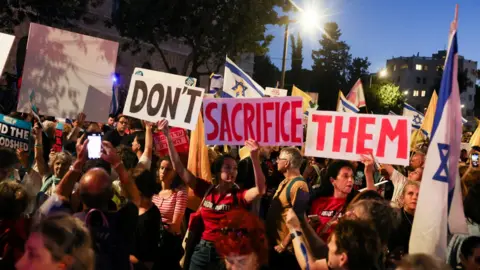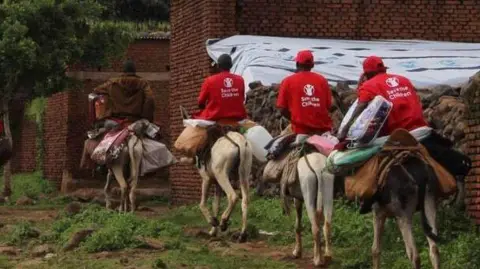In handwritten signs and graffiti, protesters made their anger at the influx of foreigners who have recently settled in Mexico City clear: “Gringo, go home!” “Speak Spanish or Die!” “Gentrification is colonization!”
The protest, which occurred last Friday, saw gathering spots for remote workers ransacked, leading Mexico's president, Claudia Sheinbaum, to publicly condemn the actions while acknowledging the demonstrators' concerns. Many residents are expressing frustration over the substantial rise in rents and food prices, particularly in neighborhoods popular among these newcomers.
“The playing field is not level,” shared Daniela Grave, a protest attendee and local resident. “If they make a living in dollars and don’t pay taxes here, we are just in unequal circumstances, Mexicans and foreigners, where those who have salaries in dollars have all the power to exert in this city and that is what should be regulated.”
The tensions leading to such protests have been simmering for years, particularly since the onset of the coronavirus pandemic. Wealthy foreign remote workers have flocked to central neighborhoods like Condesa and Roma, reshaping the socio-economic landscape of these areas. As businesses catering to this demographic pop up, longtime locals are noticing a shift in community dynamics where it seems more English is spoken than Spanish in many cafes.
The recent protests reflect a growing resentment towards the gentrifying forces at play in Mexico City, as long-standing residents confront the challenges posed by a rapidly changing urban environment.
The protest, which occurred last Friday, saw gathering spots for remote workers ransacked, leading Mexico's president, Claudia Sheinbaum, to publicly condemn the actions while acknowledging the demonstrators' concerns. Many residents are expressing frustration over the substantial rise in rents and food prices, particularly in neighborhoods popular among these newcomers.
“The playing field is not level,” shared Daniela Grave, a protest attendee and local resident. “If they make a living in dollars and don’t pay taxes here, we are just in unequal circumstances, Mexicans and foreigners, where those who have salaries in dollars have all the power to exert in this city and that is what should be regulated.”
The tensions leading to such protests have been simmering for years, particularly since the onset of the coronavirus pandemic. Wealthy foreign remote workers have flocked to central neighborhoods like Condesa and Roma, reshaping the socio-economic landscape of these areas. As businesses catering to this demographic pop up, longtime locals are noticing a shift in community dynamics where it seems more English is spoken than Spanish in many cafes.
The recent protests reflect a growing resentment towards the gentrifying forces at play in Mexico City, as long-standing residents confront the challenges posed by a rapidly changing urban environment.





















